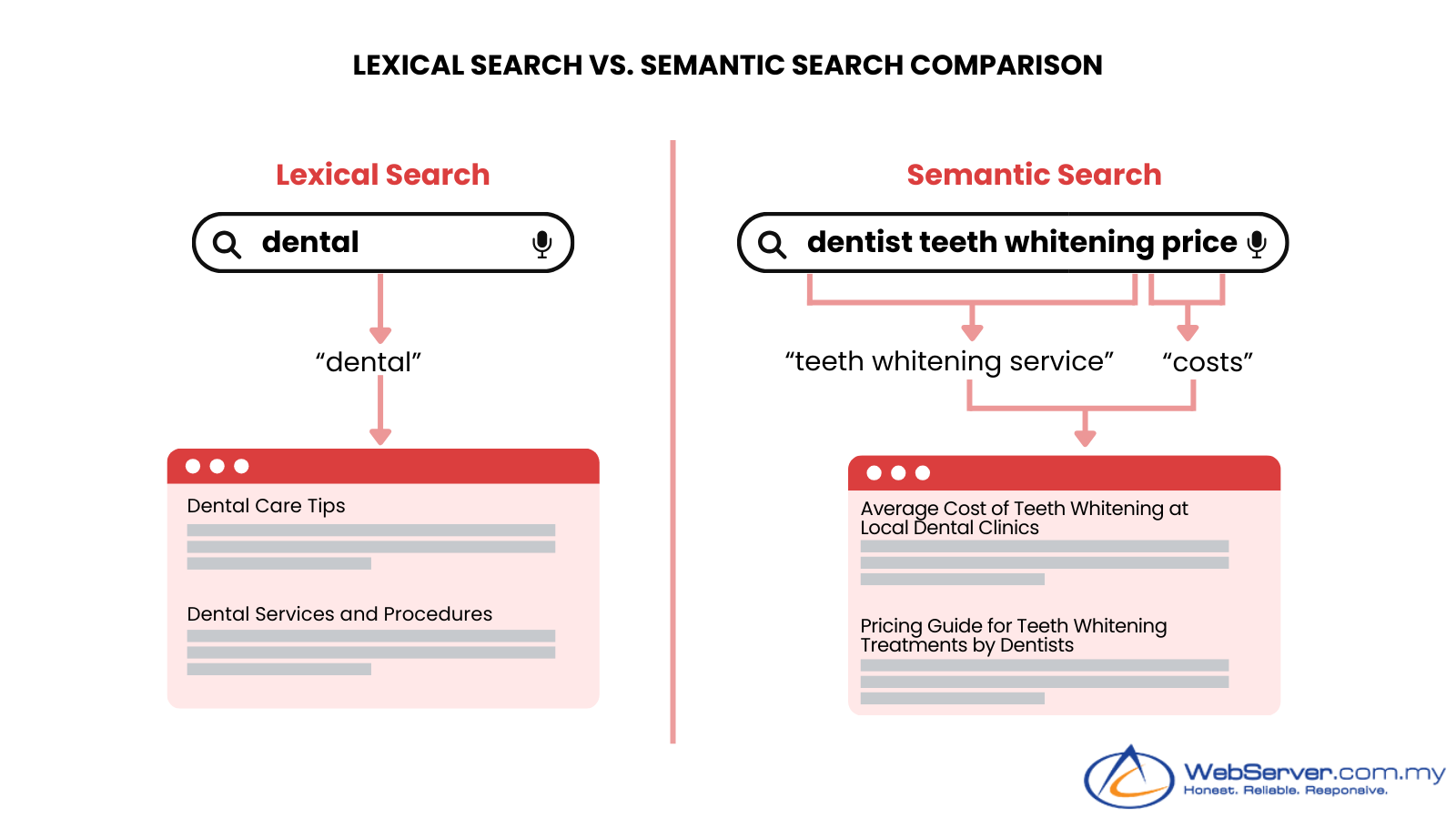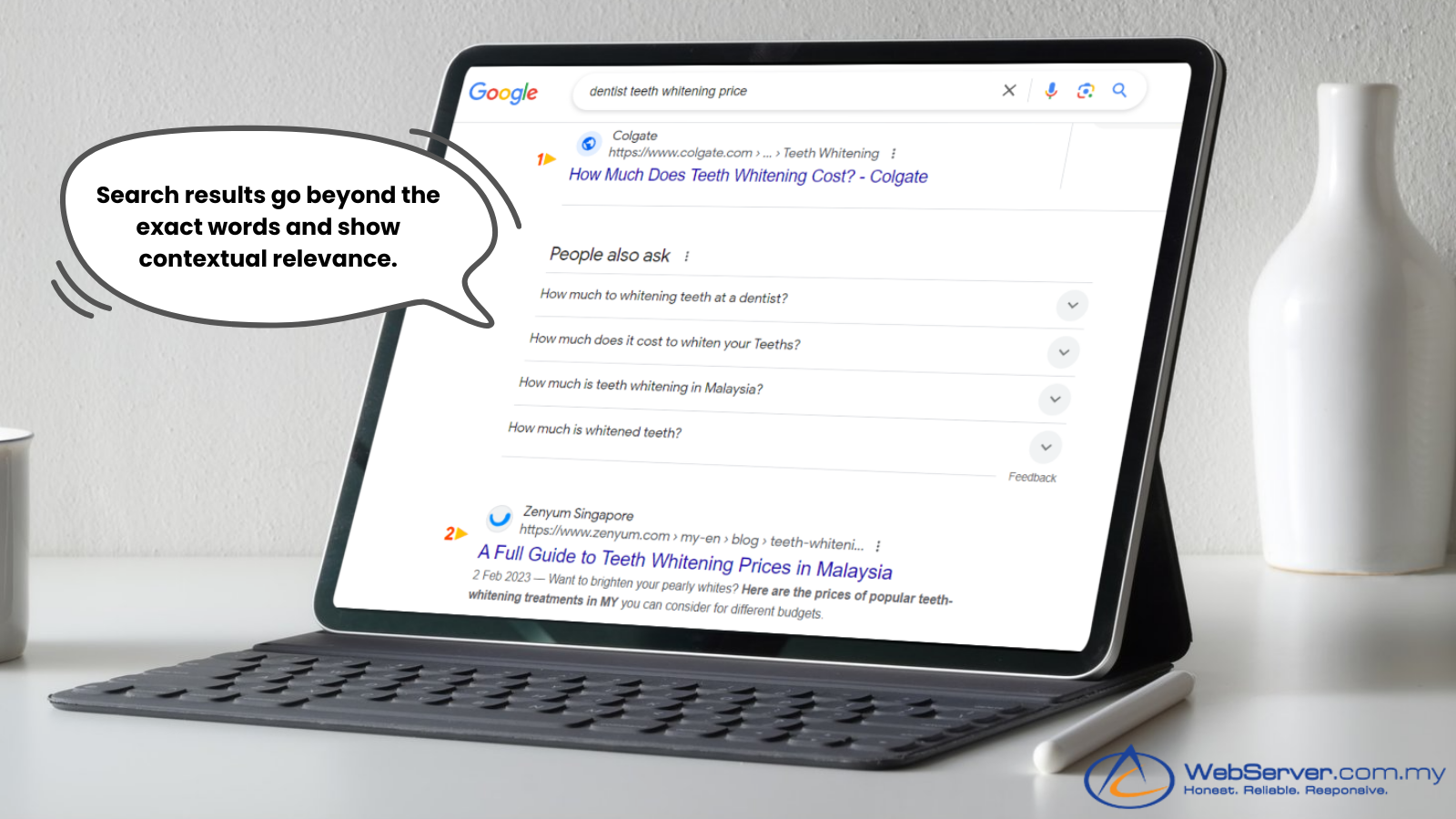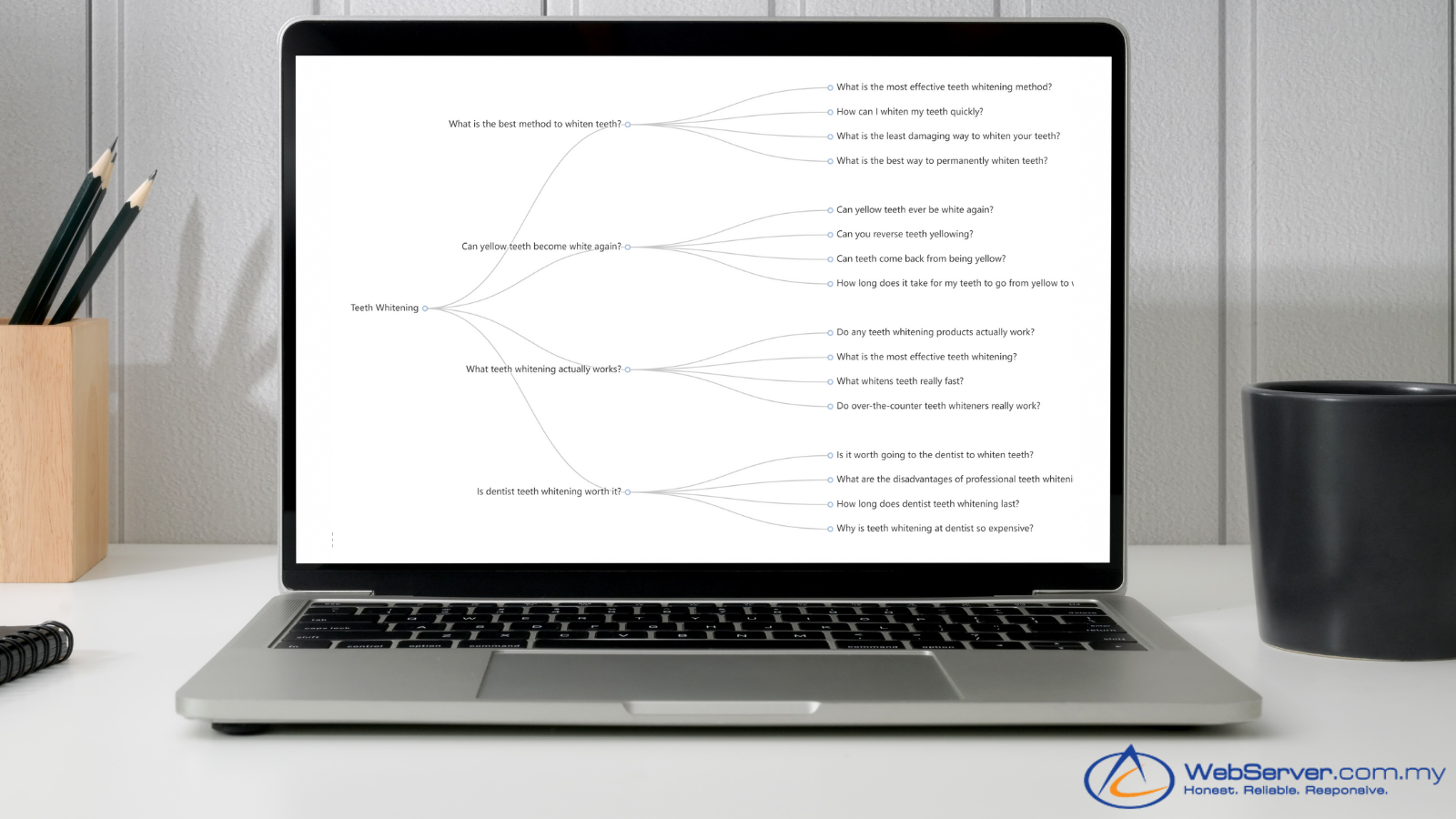-
Sales +603 2770 2833
- sales@webserver.com.my

Semantic SEO
Improve relevance with Semantic SEO using semantic markup and natural language processing.
- Enhance search accuracy by using Semantic SEO to help search engines better understand queries.
- Provide users with more relevant and comprehensive answers by focusing on content meaning and context.
- Keep your SEO strategy effective and current by adopting Semantic SEO practices that prioritise semantic search and natural language understanding.
What is Semantic SEO?
Semantic SEO is an advanced strategy that prioritises the meaning and context of search queries over specific keywords. It improves search rankings by aligning web pages with user intent, enhancing content visibility, and offering more relevant information.


How to do Semantic SEO?
Embrace Semantic SEO by shifting from keyword-focused to building a network of relevant content.
Focus on User Intent
Optimise your content for semantic search by understanding user intent, aligning it with their needs and preferences for maximum impact.
Optimise Web Content
Create high-quality, well-written SEO semantic writing tailored to your target audience to boost your Semantic SEO, allowing search engines to easily grasp the context and meaning for better visibility.
Use Semantic Markup
Unlock the power of semantic markup to enhance your webpage’s visibility. Use HTML tags to highlight key elements like headings, subheadings, and lists for better search engine recognition.
Incorporate LSI Keywords
Broaden your content’s scope and boost its relevancy by integrating Latent Semantic Indexing (LSI) keywords or semantically related keywords, enhancing context for search engines and improving your reach for diverse queries.
Automate NLP
Unlock the power of Natural Language Processing (NLP) to help your search engines understand and analyse user queries naturally, using synonyms, related words, and context for better results.
Semantic SEO Strategy & Analysis
Leverage Semantic SEO strategies and analysis for enhanced content relevance and visibility.
FAQs on Semantic SEO
SEO involves optimising a website to improve search engine rankings through keywords, site structure, and backlinks. Semantic SEO enhances this by aligning content with search engine intent and context, creating content that answers questions and uses related terms to improve understanding and categorisation.
Semantic SEO improves search engine comprehension by prioritising query intent over keywords, resulting in better content ranking, enhanced user experience, and more organic traffic. It aligns content with user intent, delivering meaningful and relevant information for both users and search engines.
- SEMrush: Provides keyword research, site audits, and position tracking.
- Ahrefs: Offers backlink analysis, keyword research, and content gap analysis.
- Moz Pro: Provides keyword research, link building, and site audits.
- Surfer SEO: Helps analyse SERP competition and optimise content.
- MarketMuse: Assists in content planning and optimisation using AI.
- Frase: Helps create and optimise content based on search intent.

WebServer.com.my, a business unit of a privately owned Acme Commerce Sdn Bhd was established in 1989. Specializes in the complex managed hosting services such as database hosting and mission critical application hosting since 1999.
-
Office Hour
+603 2770 2833 -
Extended
+603 2770 2803 -
Email
sales@webserver.com.my -
Technical Support
support@webserver.com.my
Switch The Language




